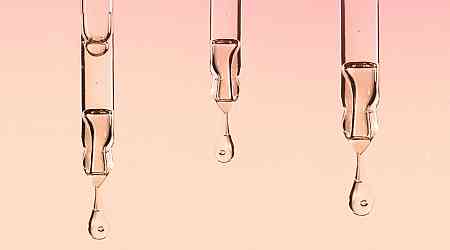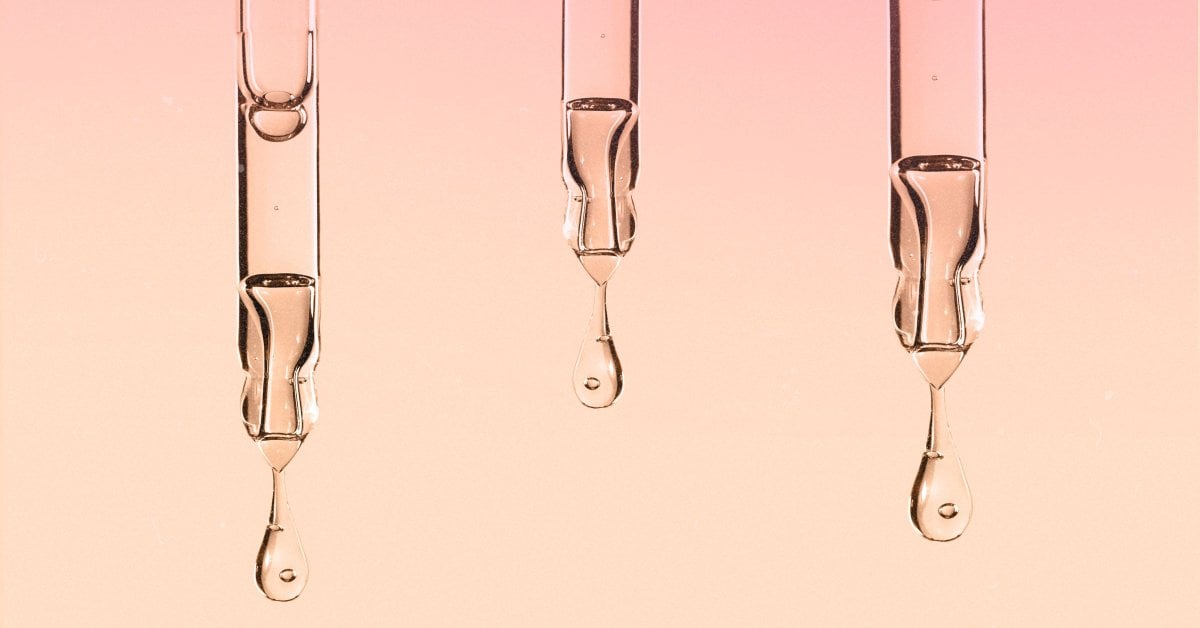
It’s no surprise that the skin care industry is having a moment. Instagram influencers are hawking expensive products left and right, and young TikTok users are continuously sharing their latest “must-have” products from Sephora.
Two terms that consistently get mentioned when people talk about their skin care routines online are “retinoids” and “retinol.” These products are touted for their ability to reduce fine lines and wrinkles and stimulate collagen production for younger looking skin. But are they as effective as everyone says?
[time-brightcove not-tgx=”true”]Below, we cover everything you need to know about retinoids and retinol so you can figure out if they’re a good addition to your skin care routine.
What are retinoids and retinol?
Retinoids are a class of prescription medications that are derived from vitamin A, says Dr. Alexis Livingston Young, a dermatologist at Hackensack University Medical Center. Retinol is a type of retinoid that is available over the counter.
The main difference between the two is that prescription retinoids are already active, whereas over-the-counter retinol has to be converted by the body into the active form. Because prescription retinoids are already in their active form, they likely work faster and better, Young says. She notes that the actual effectiveness of retinol is hard to assess since it isn’t regulated by the U.S. Food and Drug Administration (FDA).
Read More: Do At-Home Red Light Masks Really Work?
Retinoids are the gold standard product for anti-aging, Young says. There is decades of academic research supporting its ability to stimulate collagen production, reduce fine lines and wrinkles, diminish hyperpigmentation, and unclog pores. “Of all the anti-aging products that have ever been talked about, we have the most data for retinoids—really solid, decades-long data to back up the claims,” Young says.
After sunscreen use, many dermatologists actually recommend retinoids as the best thing adults can use every day for their skin health. “I think of sunscreen as brushing your teeth, and retinoid use as flossing your teeth,” says Dr. Heather Goff, director of cosmetic dermatology and associate professor of dermatology at UT Southwestern Medical Center in Dallas.
Beware of side effects
Retinoids can be very effective, but they can also come with side effects like irritation, redness, peeling, and dry, flaky skin. “The stronger the retinoid is, the more likely it is to cause that sort of initial irritation,” says Dr. Shayan Cheraghlou, a dermatologist at Zitelli and Brodland Skin Cancer Center in Pittsburgh. This means that, for example, the prescription retinoid tretinoin could lead to more intense side effects than an over-the-counter retinol product. These side effects are typically temporary, Young says, and tend to improve after about three months of use.
Read More: Why Do Some People Need More Sleep Than Others?
People with darker skin tones might also experience a temporary increase in pigmentation with retinoid use, says Dr. Asmi Sanghvi, a dermatologist at Bethany Medical Clinic in New York City and a clinical instructor of dermatology at the Icahn School of Medicine at Mount Sinai. Eventually, she says, this side effect will go away and the skin will improve.
Irritation from retinoids happens because the skin is changing on a cellular level, Goff says. Retinoids thin out the stratum corneum, which is the outermost layer of the skin that’s composed of dead skin cells. This can cause a lot of exfoliation in the early stages of use, Goff says.
If the side effects you experience are mild, you don’t have to give up: it can take up to 12 weeks to see an improvement in hyperpigmentation, fine lines, and wrinkles with retinoid use, Cheraghlou says. “You don’t necessarily need to stop when that happens,” he says. “Obviously if it’s too much then you should, but you can usually get over that hump.”
Young adds that although patients with rosacea, eczema, and atopic dermatitis can use retinoids, they might not be able to break through the initial irritation phase. “It might just be too much for them,” she says.
You should exercise caution if you use chemical exfoliants, like AHAs and BHAs, in your skin care routine. “Those are peeling agents so they can make the irritation even worse,” Cheraghlou says. And if you’re pregnant or trying to conceive, you should stay away from using both prescription retinoids and over-the-counter retinol, Sanghvi says.
Age matters
Experts are concerned about a recent uptick in teenagers and children having elaborate skin care routines that include products with retinol. In fact, there was a proposed California bill that would have prevented the sale of products with retinol to children under 13, though it failed to advance as of June 2024.
There is no reason for children and teenagers to use over-the-counter products with retinol, Cheraghlou says. Retinoids protect our collagen and stimulate new collagen production, he says, but “teenagers don’t need to use it cosmetically for the collagen effects because we don’t start losing collagen in our skin until our mid- to late 20s.”
Read More: What’s the Best Skin-Care Routine?
Although kids should not use over-the-counter beauty products with retinol for cosmetic purposes, prescription retinoids are used in teenagers and pre-teens with acne, Sanghvi says. (The well-known medication Accutane is a retinoid.) But children and teenagers should only be using retinoids if they’re prescribed by a dermatologist to treat acne.
Most people can begin using a retinoid or retinol around age 25 or 30, Young says. Goff adds that it’s safe to use retinoids consistently over the course of one’s life.
Keep these best practices in mind
If you plan on adding a retinoid or retinol to your skin care routine, here are a few things you should keep in mind.
- Consider your skin type. If you have sensitive skin or conditions like eczema or rosacea, Young recommends beginning with a topical retinol product. If your skin tolerates it well, then you can switch to a prescription retinoid down the road. If you don’t have particularly sensitive skin, she recommends beginning with a prescription retinoid since they’re typically more effective.
- Ease in. Because of the side effects of retinoids, start slowly. Sanghvi recommends using a product twice a week for a couple of weeks to start, then increasing to three times a week and gradually using it more as your skin tolerates the medication.
- Apply products at night. The stratum corneum (the outermost layer of the skin) helps protect our skin from the sun’s UV rays. “But when you thin that out [with retinoid use], the skin is more sensitive to UV light,” Goff says. Because of this, you should always apply retinoids and retinol at night.
- Wear sunscreen daily. When you wake up in the morning, you should always wash your face to get rid of any product that’s still on the skin and then moisturize and apply sunscreen, Sanghvi says.
- Apply using the sandwich method. Moisturizing is a key component of retinoid use. Cheraghlou recommends the sandwich method: apply a layer of moisturizer, then the retinoid or retinol product, and then another layer of moisturizer. “This can help with some of that retinoid irritation,” he says.
- Use caution in cold climates. It’s not unusual for retinoid irritation to improve in the summertime and then worsen in the wintertime, even after the initial three-month adjustment period. If you develop sudden irritation, Young recommends taking a break from the retinoid or retinol and using a gentle moisturizer and cleanser. “Give it a few days to calm down, and then slowly reintroduce the product,” she says. “I’m in the northeast, and some patients in the winter can only [use retinoids] twice a week, and that’s fine. It’s better than nothing.”
























